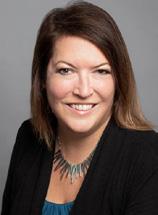MILWAUKEE COMMERCE



















Reinhart salutes the entrepreneurs, start-ups, and small business owners that positively impact our community through the creation of jobs and career opportunities and the promotion of a dynamic business environment. Indeed, small businesses are critical drivers of our economy, representing two out of every three jobs nationwide.
At Reinhart, we recognize the value of entrepreneurs, start-ups, and small businesses. While we represent many large companies, early-stage, growing businesses are a mainstay of Reinhart’s client base and many of our legal services are designed specifically to address the unique challenges and opportunities they face. From start-up and capitalization to market leadership, we help our emerging and growing business clients navigate regulation and avoid tax traps, secure intellectual property, strategize and document fundraising, manage questions of corporate governance, negotiate commercial contracts with key customers, vendors, service providers and other business relationships, resolve conflicts, expand facilities, build capacity and accelerate growth—all while developing lasting relationships.
By deeply understanding the distinct qualities of each business, our attorneys deliver a combination of legal advice, business and strategic insight, and superior and responsive service perfectly matched to each client’s unique situation. As a result, we have had the privilege to serve a wide range of entrepreneurs and family-owned businesses, including many that have completed successful exit transactions or that have grown to become national and international enterprises.
We are committed to the spirit of entrepreneurship, collaboration, and innovation that small or early-stage businesses need to thrive in a global marketplace. Our innovator-centric approach focuses on adding value and pursuing pragmatic solutions. Because at Reinhart, helping others realize their full potential for success has long been the true measure of our own success.
 Christopher M. Hruska Corporate Law Attorney chruska@reinhartlaw.com 414.298.8314
Christopher M. Hruska Corporate Law Attorney chruska@reinhartlaw.com 414.298.8314

The MMAC board ratified the election of two new directors on January 30, 2023. Additionally, 15 directors were re-elected to three-year terms. The Board also approved the full slate of officers and three additional director appointments.
THE OFFICER SLATE
CHAIR Cathy Jacobson, Froedtert Health
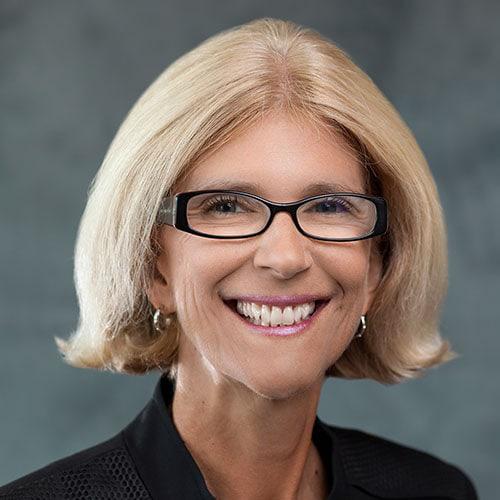
INCOMING CHAIR Austin Ramirez, Husco International
PAST CHAIR Jonas Prising, ManpowerGroup
TREASURER Jim Popp, Johnson Financial Group

PRESIDENT Tim Sheehy, MMAC
SECRETARY Julie Granger, MMAC
Robert Arzbaecher, Fiduciary Management

Kurt Bechthold, Payne & Dolan
Scott Beightol, Michael Best & Friedrich
Tina Chang, SysLogic, Inc.
Jeffrey Clark, Waukesha Metal Products
David Gay, Ernst & Young
Robert Hillis, Direct Supply, Inc.
Mary Isbister, GenMet
Jerome Janzer, Reinhart Boerner Van Deuren
Ted Kellner, T&M Partners
Gale Klappa, WEC Energy Group
Jim Kornfeld, PAX Holdings

David Lubar, Lubar & Co.
Greg Marcus, Marcus Corp.
Scott Mayer, QPS Employment Group
William Mielke, Ruekert & Mielke, Inc.
Cory Nettles, Generation Growth Capital

Ugo Nwagbaraocha, Diamond Discs International
Ulice Payne Jr., Addison-Clifton
John Schlifske, Northwestern Mutual

John Splude Sr., JWS Classics
Paul Sweeney, PS Capital Partners
Chris Abele, CSA Partners
Kevin Anderson, Old National
Paul Bartolotta, The Bartolotta Restaurants
Steve Booth, Baird
Jeff Bradford, Grant Thornton
Carla Cross, Cross Management
Jack Enea, Husch Blackwell
Justin Frank, Frank Liquor Co.
Brian Grossman, Chase
Tim Matke, MGIC
John Mellows, Charter Manufacturing
Joel Quadracci, Quad
Bernie Sherry, Ascension Wisconsin
Peggy Troy, Children’s Wisconsin
Tom Westrick, GE Healthcare
CHAIR: Cathy Jacobson Froedtert Health
INCOMING CHAIR: Austin Ramirez Husco International
NEWLY-ELECTED DIRECTORS:
Nick Bauer Operose Advisors Anoop Prakash Formerly REV Group

NEWLY-APPOINTED DIRECTORS:
Columbus
The MMAC Board represents a cross-section of members by company size and industry throughout the Milwaukee region.
Innovation. It’s the heart of new ideas and the soul of new startups. It drives business – large and small – and without it, complacency and stagnation fill the void. As business coach and author John Maxwell said, “Change is inevitable; growth is optional.”

You don’t have to look far in the metro Milwaukee business community to find outstanding examples of innovation. Our small businesses and startup ventures are creating jobs and capital investments that have a ripple effect throughout the economy. Businesses with 1-100 employees account for roughly 37,000 businesses in metro Milwaukee.
The region’s startup ecosystem is gaining traction. We’re amplifying the stories of successful funders and founders through MKEStartupnews.com. On March 10, Mayor Cavalier Johnson was invited to “pitch” the city’s value proposition to business and talent at the famed South by Southwest (SXSW) festival in Austin, Texas. MMAC and Milwaukee 7 worked as part of a unique coalition of the City, Summerfest, Summerfest Tech and CSA Partners to make this happen. Milwaukee was showcased as a hub for innovation to the founders and funders who attend SXSW.
As you’ll read in this issue, the demographic makeup of our region is a significant challenge to growth. Small business ownership locally mirrors a trend facing the entire region: the population is aging with not enough people entering the workforce to replace those retiring.
The MMAC itself operates as a small business – albeit a not-for-profit one. The organization faces many of the same challenges as other small enterprises in the region. As the leader of this team for the past 30 years, I understand the importance of succession planning to drive the vision and mission forward beyond my tenure.

Earlier this year, we announced Dale Kooyenga was joining the staff as Senior Vice President as part of a planned leadership transition. I have every confidence that the MMAC will be perfectly positioned to advance and will continue to strive toward the vision of a globally competitive region that attracts jobs and investments to support a vibrant quality of life for all.
A change in leadership for MMAC is inevitable. Driven by a team of smart, talented and visionary leaders and team members, its growth is assured.
Tim Sheehy MMAC PresidentSmall businesses employ more than half of all employees in the United States (64.4 percent), accounting for 61.7 million jobs. They are the lifeblood of the economy and in many ways still represent the American dream of taking an idea and growing that idea into a successful venture.
According to the US Small Business Administration, “small businesses” are defined as firms with fewer than 500 employees. While the upward end of that definition feels much bigger than “small,” 27 million small businesses do not hire any employees and 5.4 million have fewer than 20 employees.
1,314,026 small businesses temporarily closed a location (21.7%)
Unsurprisingly, small businesses were hit hard by the effects of the pandemic. From October 2020 to October 2021, one in five U.S. businesses shut down.
Despite the lingering effects of the pandemic, small business growth is ticking up — a 2.2% increase in 2022 over 2021 and an overall growth rate of 12.2 % from 2017-2022.
In metro Milwaukee, the trend in the total number of small businesses (defined for our purposes as having fewer than 100 employees) is down slightly over the long-term from a high of 39,157 in 2006 to 36,477 in 2011, a slide in large part due to the Great Recession. Since that time, the small business establishment number has recovered slowly, reaching 37,257 in 2020, the latest data available from County Business PatternsU.S. Census Bureau.
Metro Milwaukee top five categories of small business:
• Health care & social assistance
• Retail trade
423,879 small businesses reopened after closing down (7%)
1,017,31 1 small businesses permanently closed (16.8%)
• Professional, scientific, and technical services
• Other services (public administration, for example)
• Accommodation & food service
• Construction
The importance of small business can also be seen in the percentages of total in employment and payroll. By enterprise, 31% of private sector employment in the metro area is at firms with fewer than 100 employees (246,143 employees).
Conversely, 69% (546,941 employees) is at firms with 100 or more employees.
Comparatively, metro Milwaukee ranks in the middle of the pack on small business establishments per 1,000 population in 2020 at 23.7, ranking 28th among the 50 largest metro areas in the U.S. Miami registered the highest per capita figure of the 50 at 33.2 while Riverside, CA had the smallest ratio at 16.9.
Between 2010-2020, several business categories in metro Milwaukee experienced declines, including:
Source: U.S. Census Bureau
20% of small businesses are owned by women
30% of small business owners have a bachelor’s degree
$73 BILLION
in small business loans have been funded since 2020
-240 -260 -296 -325
Research has suggested that dynamic metro area growth is most evident in startup activity. The number of startup businesses (with employment) per year has averaged 1,813 in the Milwaukee metro area since 2000. These startups account for net job creation averaging 11,250 per year. Net job creation for all other firm ages is negative on average, so startup activity is important to the job creation process.
The metro area has not ranked well in this regard. In a 2020 ranking of the 50 largest metro areas in startups per 1,000 population, the metro area ranked 41st per 1,000 population and 37th in net job creation per 1,000 in startup firms. Read more in this issue of Commerce for efforts underway to spur and support startup growth.
1.2 million jobs were supported by small business loans since the pandemic
98% of each industry is comprised of small businesses
18.7% of small businesses are MINORITY-OWNED
The highest percentage of owners fall in the 55-TO-64 AGE RANGE
Our bankers are committed to crafting creative solutions, anticipating your needs, and helping you reach your financial goals. A true financial partner. You gain access to a team of experts who know your business and Wisconsin as well as you do. Partner with us and your success will be our top priority!






Supply chain disruptions continue to affect small to medium-sized businesses (SMBs) throughout the U.S. Back in 2021, many local SMBs thought the worst of the pandemic-related supply issues were behind them. Unfortunately, they persisted throughout 2022, with customer back-orders becoming the norm.
Do SMBs have greater supply chain woes than larger companies? Data from an SMB Retail Supply Chain survey conducted in March 2022 indicated that the answer is yes, and these difficulties are expected to last through 2023.
While larger businesses are certainly not immune to these issues, because they can route materials more quickly in more ways and are also first in line with suppliers because of the sheer scale of their purchases, they have a major advantage in procuring inventory.
Nearly 60% of SMB owners surveyed say it’s taking “somewhat longer” to “much longer” to procure inventory than in 2021. More than one-third of SMB retailers are paying 20% more for shipping than 12 months ago, and 50% have increased their retail prices to offset the increased supply chain costs.
Destabilizing trends such as inflation, B2B (business-to-business) shipping moving to D2C (direct-to-customer), and increasingly tense global trade, are contributing to the current supply chain crisis.
Focusing too much on being efficient, or what’s known as the just-in-time model, has highlighted how prone supply chains are to disruption. Companies are contending with this increased need for sustainability alongside an explosion of e-commerce.
Additionally, the demand for physical goods is surging and manufacturers are often understaffed. In short, the supply chain cannot keep up.
Many small to medium-sized business owners are coping with the disruptions by looking carefully at their own sales and operating processes and using technology to create rolling forecasts regarding what needs to be sourced and when.
One of the first steps toward recovery is supply-chain transparency, which companies can achieve by mapping their networks fully from tier-one suppliers on down, so they understand the exact composition of their chain. Having multiple suppliers can also help reduce costs associated with production delays and improve the operations of the chain as a whole.
There are resources for SMBs to address supply chain challenges as the business community focuses more on this issue, and as always, working with experienced lending partners can help your business be prepared as issues and solutions arise.
Glenn Margraff Executive Vice President Wintrust Commercial Banking at Town Bank, N.A. www.townbank.us

PRESENTING Investment:

When it comes to having a succession plan in place for your business, there are some common misconceptions. The first being, you don’t need a plan until you get closer to retirement. The reality is that many business owners leave their business before retirement due to an unexpected event. Another misconception is that you can execute a plan within a year of retirement. In reality, many planning engagements take several years to execute.
Establishing a transition plan takes time and careful deliberation – business owners should develop a plan as soon as they start to build wealth in their business. To formulate a succession plan, start by answering five key questions:
1 2 3 4 5
Your business should have value in its unique products and services, customer base, and employees. Value is preserved by ensuring that trade secrets are protected, shareholder agreements are in place and key employees are retained during a transition. Further, value is maximized by strong financial performance. Preparedness also involves a contingency plan for unexpected events.
Ideally, you have options when it comes to your possible successor. Consider if that plan includes selling to a management team, transitioning to a family member, merging with a competitor or becoming an ESOP.


In other words, if you sell your ownership interest in the business, will it be enough to fulfill your personal needs now and in the future? If you find, after calculations, a gap between your personal needs and the amount of after-tax proceeds from the sale, there are strategies to close that gap. This process involves a deep dive into your personal net worth, inclusive of all assets and the value of your business interests, to determine your personal financial needs.
Make sure you set a realistic, yet flexible timeline for yourself to leave the business. This timeline gives you and your team firm expectations and a deadline in mind.
Business owners spend a significant amount of time building their business, and walking away can be traumatic. To navigate this question, determine what kind of legacy you want to leave and what your ambitions are for retirement.
Thomas Bayer CPA, CExP, and Partner Sikich LLP
These are challenging times for the construction industry. There’s a backlog of business on the books, and that’s keeping things hopping. But keeping up – much less ahead – of demand is problematic as pressures mount.
Shortages of both labor and materials are ongoing pain points. Inflation is driving costs of everything up – including money – and threatening the viability of projects. And other outsized risks – think catastrophic events like floods, fires, earthquakes, hurricanes and tornados – are causing billions of dollars of catastrophic losses.
And, in turn, this has created an environment that has added to the pressure on the all-important Builders Risk insurance. All the uncertainties are pushing premiums up 15% to 20% in the marketplace overall, but as much as 100% in regions most exposed to weatherrelated risks, such as Florida, Texas, and California. And getting it at any price, especially in those markets, can be problematic as capacity is increasingly limited.
In the most exposed areas, problems getting Builders Risk coverage at all, much less affordably, may cause lenders to pull back and projects to be postponed. Wherever the project, though, and especially for those valued at $10 million or more, construction firms must go the extra mile in planning against the exposures to Builders Risk losses.
Here’s how firms can position themselves to be considered best-in-class risks during a difficult market for Builders Risk.
Builders Risk insurance – or construction site property insurance – protects against damage by fire, wind, vandalism, vehicle collisions or other accidents, and may also cover construction materials stored off-site and cleanup costs such as debris removal. Insurers want pro-formas or budgets that reflect protective measures including:
• Fencing: All projects are required to be completely fenced and locked during non-working hours.
• Lighting: Adequate lighting – beyond basic street lighting – must surround the site.
• Monitoring: Security guards are one measure, but remote video monitoring with a central station alarm system is a more comprehensive approach. It’s especially important to ensure devices to detect and alert for water intrusion and fires.
• Hot works: Should hot works, welding or open flame heating be undertaken inside or outside the building, details must be provided.
The more information provided to the insurance broker in advance, the more streamlined the quote process and the more likely pricing will be competitive. Here’s what should be included:
• Detailed line-item budget that breaks down hard and soft costs as well as delay in startup costs
• Copy of the General Contractor Site Specific Safety Plan
• Geotech reports
• Architectural and site plans, drawings, and sections, including project description and scope of work
• Construction schedule/Gantt chart
When budgeting for Builders Risk, several items, length of project, soft costs and business interruption can sometimes be overlooked.
The issue with length of project budgeting is that firms often don’t take into account that it is an annual, or 12-month, rate used to price the policy. An 18-month project, then, would need to account for the extra time by multiplying the expected rate by 1.5.
Typically, soft costs and business interruption amount to 15% to 20% of the construction budget – and add to the total insurable value of the project. These limits can vary based on lender requirement and the risk tolerance of the general contractor and/or developer.
The tightness in the Builders Risk market, especially on frame construction projects, makes it critical for general contractors and project owners to plan ahead. This means opening discussions early with broker partners about upcoming building projects and their timelines so they can get into the market, prepare management for any sticker shock, and also for the possibility that it may take financing to cover the cost of the insurance premium.
Sean Coykendall Vice President Commercial Insurance & Employee Benefits Consulting Hub International www.hubinternational.com


At Goldstein Law Group, S.C., we serve as outside counsel to business. Accordingly, it is sometimes easy to forget that we, ourselves, are also in business. In February of this year, we celebrated our 15-year anniversary (and nearly 30 years of law practice for me). It’s been quite a ride.
Mark Goldstein Owner/Attorney Goldstein Law Group






We have been afforded the unique opportunity to learn, not just from our own experiences, but from our clients as well.
Here are a few such lessons (paired with a few favorite quotes):
Shep lived by three rules: 1) Get the money, 2) Remember to get the money, and 3) Always remember to get the money.
– Supermensch (The Legend of Shep Gordon)
The rules of business may be simple, but execution can be far more difficult. Create systems, and follow them, but recognize that your systems are just a start. They will need to be revisited and tweaked and, at times, violated or even discarded. Knowing when and how to do this is the key. For example, foregoing your own paycheck – less than optimal, but it happens (no matter what they say about “always pay yourself first”). On the other hand, foregoing payroll taxes or payments to your bank or health insurer is inviting trouble.
– Office Space
If employees are not your solution, they may very well become your problem. Long before recent events, demographic forecasts suggested staffing would become a great challenge. In years since, we had the pandemic, the push for remote work, and now “quiet quitting.” How do you feel about the compensation and benefit package you are currently offering? Can you demonstrate that it has helped you attract and retain (the right) employees?



You will undoubtedly hear from other business owners who have flaunted the rules (or simply been ignorant of them). Examples include taxation, minority business owner rules, exempt/non-exempt determinations, and all the regulations relative to independent contractor status. Some of them will suffer the consequences, and others may never. As for yourself, know what you don’t know and keep your own counsel. Having trusted attorneys, accountants, mentors, and other advisors will help you keep your bearings.
In the end, Teddy Roosevelt captured it well when he talked of his admiration for the “man who is actually in the arena, whose face is marred by dust and sweat and blood, who strives valiantly, who errs and comes up short again and again, because there is no effort without error or shortcoming, but who knows the great enthusiasms, the great devotions, who spends himself for a worthy cause…” And yet there is nothing noble about stumbling into the same traps as generations of prior business owners or those easily avoided.
Thanks to the MMAC for the community of business owners it has created and serves, and for providing me this opportunity to reflect on all that I’ve learned over the past years. Onward!
I have people skills!
What I do have are a very particular set of skills.
– Taken v.


Years ago, proximity to resources, access to markets and conventional transportation were enough to fuel growth and prosperity. What once would position your company for success may not be enough today. However, by aligning supply chains, businesses can become more resilient and agile.
“In these uncertain times, facing headwinds with inflation, increasing rates and supply chain challenges, having a banking partner you trust and rely on is more important than ever before,” says Jeffrey Schaefer, Senior Vice President of Corporate Banking.
“Associated Bank has fortified ourselves in the Upper Midwest commercial banking market with well over 120 years of dedicated support and service to our valued clients. Having the privilege to work for Associated Bank in Southeastern Wisconsin for 16 years, I know trust is earned when actions exceed words.”
As a reliable financial partner, we’ve grown globally with our clients and developed a broad-based picture of supply chains in a full spectrum of industries. This is the point of view we offer.
Fixing disruptions, solving issues and addressing challenges to supply have become all-too-familiar occupations. We’ve been allowing the pendulum of supply—from local to national to offshore to global— to swing for too long. The goal is to capture the mid-range of that supply chain pendulum. However, reaping the advantages of globalization, while mitigating its risks, isn’t enough to fix today’s problems.
Diversifying sources of supply through on-shoring, near-shoring and investing in manufacturing and transport facilities requires investment. Easing transportation jams alone won’t yield solutions, and new manufacturing capacity—on the part of our clients or their suppliers—won’t necessarily solve the problem.
In the past we saw the end of low-cost, untroubled energy sources, cost savings on inventory, commitments to globalization and the rapid deployment of offshore manufacturing. Together, these ingredients created the present situation. Today, we need a detailed analysis and a wide-ranging assessment of the supply chain to assure agility and resilience moving forward.
Providing your business with options is the key to offering reliable resources for supply and distribution. It’s a balancing act and investment is needed to bring this balance into action. Circumventing transportation jams, boosting domestic supply capabilities, providing a prudent inventory to assure continuity—all three are typically essential parts of an overall answer.
Do you help make your employees smile? Happy workers make for a more successful business, and when they feel respected and valued, they’re more likely to be happy and engaged. Try implementing some or all of the recommendations below to see more smiles in the office!
1. Make employees feel valued. Employees care about more than just their salary. By offering an attractive benefits package that addresses their additional needs and wants, you can help reduce their stress and increase their happiness. And, of course, dental coverage will help employees keep a healthy smile that they will love to show off.
2. Embrace work/life balance.
Businesses who embrace a strong work/life balance and offer flexible hours and remote work options tend to have happier employees compared to those who are requiring full-time inperson workplaces.
3. Give employees a voice.
Gather feedback on your benefits program to make sure employees know you are listening and working to make sure the benefits you offer — including your dental and vision plans — are meeting their needs.
4. Do little things that make a big difference. Celebrate a job well done and goals that are met by individuals and teams. Smaller, more frequent, positive feedback and rewards have been proven to keep employees happier than large but less frequent events. And, try stocking plenty of healthy, smile-friendly snacks around the office.
Read our full blog by scanning the QR code with your smartphone.

Have dental or vision benefit questions for your organization or yourself? Reach out using my contact information below!
Jackie Bloomer Sales Executive Delta Dental of Wisconsin (414) 659-0481 deltadentalwi.com
How do we make managing your employee benefits easy? By providing a dedicated account manager, offering combined administration, and helping keep rates stable. Plus, we’re known for our responsive service and large provider networks. Who partners with you to make your employees happy?
#DefinitelyDeltaDental
Kyle Weatherly is one of the most successful members of the Milwaukee startup community. The University of Wisconsin graduate founded Frontdesk in 2017. By 2021, the company was edging toward the top of Inc. Magazine’s list of America’s fastest-growing companies.

The short-term real estate rental company raised $22 million in capital under Weatherly’s leadership. In 2022, he transitioned from CEO to board member with co-founder, Jesse DePinto, taking the helm.
Kyle Weatherly Board Member FrontdeskBefore his celebrated success with Frontdesk, Weatherly grew his family’s West Allis based Solaris, Inc. from five employees to 120 employees. The medical device company was sold to a German-based conglomerate for an undisclosed amount in 2014.
Commerce Magazine asked Weatherly to share his thoughts on how the business community in metro Milwaukee could improve its startup ecosystem.

Milwaukee is a tale of two economies. We punch well above our weight in Fortune 1000 headquarters but, by most any metric, Milwaukee struggles with new company formation and success.
This is news to no one – especially ‘Corporate Milwaukee’, which has invested meaningful time and money into improving early-stage startup success. Thank you! That said, when I talk to entrepreneurs, they still feel there is much more that could be done.
Below is a list of big and small ideas that I have heard from Milwaukee entrepreneurs on how Corporate Milwaukee can help ‘Startup Milwaukee’ reach its substantial potential.
I go to a lot of startup events, and rarely do I meet anyone from Milwaukee’s largest companies. Consider having your employees attend these events to learn how major corporations can partner with local startups.
It has been said before, I know. But startups need the right kind of customer. A customer who can get quickly to “yes” – or at least get quickly to “no.” Startup businesses cannot succeed if it takes months or even years for prospective customers to decide if the partnership is a fit.

Large companies are great at hitting metrics. So, why not treat startup spending the same way? Consider allocating an annual percentage to spend with Milwaukee startup businesses that are less than five years old.

I know this sounds crazy, but why not offer startup capital as an employee benefit to high performers? For example, after four years of employment, offer employees the opportunity to receive a $100,000 investment in their startup company.
By doing this, you will attract entrepreneurial talent and get a chance to invest in great business ideas at the ground floor. And, given that the startup founders are coming from your company and industry, the odds are high these future companies will be fixing a problem you currently have.
Startups can’t always meet in coffee shops and living rooms. Consider offering startup businesses free office space. This corporate generosity will allow the emerging company to apply more capital to scaling efforts, while creating a more innovative and vibrant office environment for your business.
Most large companies have outstanding training and development programs. Why not offer that world-class training to startup companies? In my experience, many entrepreneurs would greatly benefit from corporate-level management and leadership programs. The skills they gain in your organization will allow Milwaukee startups to succeed at a higher rate.
Milwaukee is a tale of two economies.
We punch well above our weight in Fortune 1000 headquarters but, by most any metric, Milwaukee struggles with new company formation and success.




The Milwaukee-based business accelerator has a growing national presence. The award-winning program, founded by Joe Kirgues and Troy Vosseller in 2012, has provided more than $1.3 billion of funding to growing companies. From the free gBeta program designed for earlystage companies to high profile collaborations, like the Northwestern Mutual Black Founder Accelerator that attracts top startups from across the country, gener8tor is an undeniable force in the startup ecosystem.













































This program is a partnership between the UW System’s Center for Technology Commercialization (CTC) and the Wisconsin Economic Development Corporation (WEDC). Established in 2014, the two-stage program offers business training and funding to advance new and growing businesses in Wisconsin. A key requirement of the program is that a UW System faculty, staff, student, or alumni must be involved in the company.


This list highlights a few of the many resources available to startup entrepreneurs. For a more comprehensive list of accelerators and other resources available to support startups and small businesses, visit startinwi.com, supported by the Wisconsin Economic Development Corporation.



Operated by the Young Enterprising Society, this accelerator combines bootcamp-like technical and business training along with a traditional business accelerator curriculum. The program offers $100,000 of seed capital to selected urban startups.
Offered by Scale Up Milwaukee, this tuition-based business accelerator provides business education and mentorship to BIPOC and womenowned businesses with annual revenue between $25,000 and $1 million. SPARC has had 167 companies complete the accelerator since it launched in 2017. Collectively, those companies have increased their revenue by 36% on average.
Accelerating Medical Product Development with Networked Resources is a collective that includes the Medical College of Wisconsin, University of WisconsinMilwaukee, Concordia University Wisconsin, Marquette University, Blood Research Institute/Versiti and Milwaukee School of Engineering to accelerate commercially viable development in the Healthcare and HealthTech industries.
Funded by the WEDC, this six-month program is free to food-based entrepreneurs with an active business.
Presented by The Water Council, The Business, Research and Entrepreneurship in Water (BREW) Accelerator 2.0 is for companies working in water technology. The free program attracts a global pool of applicants with market-ready technologies.
Sponsored by the Milwaukee Tech Hub Coalition, this program is a startup incubator, rather than an accelerator, but it provides many of the same services accelerators provide. The free program is open to entrepreneurs at any stage in the business development process. With support from the WEDC and Bader Philanthropies, FOR-M has awarded more than $240,000 in grants to local startup businesses.
The tuition-based, 11-month program provides $5,000 in funding to participants. The business is open to all entrepreneurs with businesses at any stage.
Presented by Marquette University, this five-week program is open to anyone looking to scale up an existing business.
•Barley to Barrel Incubator
•BizStarts
•Brew City Match
•Center for Technology Commercialization
•Doyenne- Milwaukee Office
•FaB Wisconsin
•Food Finance Institute Fellows Program
•Health TechMKE
•KIVA
•LISC Milwaukee
•MEDC Capital Access Program (CAP)
•MKE Tech Hub Coalition
•Scale Up Milwaukee
•SizeUp from WEDC
•SCORE Mentors of SE Wisconsin
•Small Business Association (SBA)
•Small Business Development Center (SBDC)
•Small Business Innovation Research Program (SBIR)
•Start in Wisconsin
•StartSmart from the City of Milwaukee
•The Commons
•UWM Research Foundation
•WiSys VentureHome
•Wisconsin Small Business Development Center
•Wisconsin Technology Council
•Wisconsin Veterans Chamber of Commerce
•WWBIC
Consumers today have more choices than ever when it comes to what, where, and how they watch their favorite programming. 46 percent of consumers are now multiscreen viewers.1 And consider this: on average, multiscreen advertising campaigns double the exposure of an ad compared to a traditional TV or streaming TV campaign alone.2
The Spectrum Reach Ad Portal makes it affordable and easy to target your audience down to the zip-code level on their top TV channels, streaming networks, and devices.


Our DIY, self-service platform gives you the media planning and buying tools you need to create impactful advertising:
Reach all your customers on all their screens without limits, regardless of subscription or geography.

As one of the largest video advertising companies with decades of experience, we have access to millions of exclusive audience insights.
Ad portal provides you the opportunity to bring your brand’s message to life with two free creative options. Build your commercial yourself in less than 15 minutes with smart templates or let our experts create a compelling brand message for you in less than three days
With Spectrum Ad Portal, it’s simple: Reach more customers. On more screens. On your budget. All through one easy-to-use self-service ad platform.
on TV.
Now, you can advertise on the top TV networks on your budget using our online platform.

Are you interested to see how Milwaukee measures up to similar cities, like Indianapolis or Kansas City? Curious to see the numbers behind Austin’s booming startup scene? The Metro Milwaukee Innovation DataTool has the answers.
The DataTool is designed to gauge the Milwaukee metro area’s performance on a range of indicators tied to innovation and economic growth. The tool allows users to access data on 17 economic indicators grouped into five categories: Capital Formation, Economic Trends, Idea Development, Regional Talent, and Startup and Small Business Development.

The tool is meant to help economic development leaders and the broader community identify the region’s economic strengths and weaknesses and set priorities for future advancement.
Created by the Wisconsin Policy Forum and supported by MMAC Board member Chris Abele and Bader Philanthropies, Pitch Book is the data source for these reports. Pitch Book is a subscription financial analysis database that provides capital market data. The DataTool is updated quarterly.
To access this useful information, go to MKEStartup.News and click on DataTool.
Capital Formation
Economic Trends
Idea Development
Regional Talent Startups & Small Business Development
When Wisconsin entrepreneurs shine, the whole region shines. Learn about a small company making a big impact on the Milwaukee region by supporting large companies, both locally and abroad.

Managecore, a provider of SAP Technical Managed Services, might be the biggest Milwaukee success story you’ve never heard of.

In August 2022, Inc. Magazine released its annual list of the fastest growing companies in the nation. Managecore was the highest-ranking company in the metro Milwaukee area, and the second-fastest growing company in Wisconsin.
To learn more about this nationally recognized company with an international client list, view managecore.com
Ranked at #488, the SAP (System Applications and Products in Data Processing) technical managed services company easily outranked much talked about startups Fetch (#617) and Frontdesk (#975) by showing an astonishing three-year growth rate of 1,266%, according to the magazine.
The Franklin-based company was launched in 2016, with early capital investments from Blackthorne Partners, which invested $1.24 million in 2016 and $751,000 in 2017.
 Frank Powell Founder Managecore
Frank Powell Founder Managecore
MKEStartup.News spoke with company founder and SAP industry veteran Frank Powell about the runaway success of Managecore.

MSUN: What is the SAP market like?
FP: SAP is a unique software product that most of the Fortune 5000 companies run and it literally is the heartbeat of their business. So, when SAP is down, people stop making products, shipping products, taking orders for product; literally, their world comes to a screeching halt. We work in a very ‘mission critical’ IT environment.
The 24/7 nature of what we do is key. We maintain these systems and tune them to ensure they are properly optimized and always up and running.
We are very proud that Managecore has had 100% project success and 100% customer retention to date.
MSUN: According to Inc. Magazine, Managecore had a three-year growth rate of 1,266%. How did you accomplish that feat?
FP: Honestly, I have a great team. CMO Kristin Taner and CTO Nick Miletich have been with us from the very beginning.
When starting Managecore, we asked ourselves ‘what are the things that customers don’t like about outsourcing IT services?’ and wrote those all down. Then we asked ourselves, how do we fix those things and how do we do something better and different?
Things like being transparent and always having senior-level resources came to the top of the list. Employing seniorlevel resources was essential so that you’re not going to get bounced from one inexperienced person to the next, and to the next and (it) could take four iterations to get to the person who can actually answer the question.
At Managecore we hire senior people so that when you pick up the phone and call Managecore, you’re getting direct access to someone that can actually answer your problem.
Our unique delivery model has really been the big part of our success. As far as the service-level side, that is having the right people and the right tools.
Another one of Managecore’s initiatives is that we want to do twice as much with half the number of people. With that goal in mind, we really try to leverage as much software as we can and use automation where we can. Hiring all senior-level people helps because their time to resolution for a problem is much quicker than someone who’s trying to research it and figure it out.
By just the nature of the quicker turnaround, they can handle more problems or get more work done in a day than other people can.
MSUN: How can a small Wisconsin-based company compete with large SAP management firms?
FP: Managecore manages technology, but people want to do business with people they like. My two sales guys, they are great guys who have experience and truly care about the customer’s experience with Managecore.
Large companies tend to take an unpersonalized approach to customer delivery which can be very problematic. Some large consulting companies can bring a large amount of consultants to the engagement but having an army of inexperienced resources is inefficient for SAP customers.
MSUN: High quality staff has been essential to Managecore success. How have you been able to find talent?
FP: Part of it is a lot of us have been in the industry a long time, so we know where the good people are. I’m not trying to hire hundreds of people. I’m trying to hire two to three at a time.
One of the things that we’ve done from the very beginning, because it’s a technical strength for us, is we cross train our people. If you know one discipline, we want to cross train you in other disciplines; not that this second discipline becomes your primary job responsibility, but it gives you visibility, it helps you troubleshoot problems more deeply. You get to learn a new skill set on the side and I think people really appreciate that.

When it comes to today’s tight labor market, recruiting new employees can be challenging, not to mention retaining the ones you already have. That’s why companies are investing in their employees by providing everything from flexible work environments to personal and professional development opportunities.
Offering your employees professional development and upskilling opportunities is a win-win for everyone. For you, it helps increase productivity and retain quality employees. For the employee, continued learning is an opportunity to grow within a company while improving morale and overall job satisfaction.
Training can also help fill or grow positions within a company. For example, if you have a great salesperson and want them to train new salespeople, courses like Train the Trainer or Leadership
Development can provide the needed skills and increase success. Or maybe, you have a talented graphic artist, but they have no idea how to start a social media campaign. Rather than hire additional people, consider training those you have with the skills you need.
This year, take your business to the next level by offering your employees the opportunity to increase their skills. Whether it be learning improved processes with Excel, managing projects or people, or maintaining their engineering certification, the UWMSchool of Continuing Education has programs and classes to fit almost every professional and personal development need. Classes are typically one to four days and are available in-person or online. Plus, our instructors have real-life experience working in the fields they teach, providing the skills your employees need to make an immediate impact on your business.
Take your business to the next level by offering your employees the opportunity to increase their skills. From learning improved processes or something completely new, UWM’s School of Continuing Education is here to help. Explore our powerful lineup of programs ... and watch your team go from ordinary to extraordinary! Ask us about our custom programs where we can bring the classroom to your team.
Series begins:
Wednesday, May 17 8:00AM to 12:00PM
MMAC Offices


301 W. Wisconsin Ave., Ste. 220 Milwaukee, WI 53203
This six-month series is designed to support highperforming individuals who are not yet in a formal leadership role. The process involves a combination of training, coaching and learning reinforcements. This group will meet on the third Wednesday of each month for a half day.


Investors desiring to maximize wealth will often utilize investment strategies to mitigate risk or losses. Diversification is a strategy that reduces investment risk by allocating investments across the various investment instruments. A well-diversified portfolio will be able to weather the volatility of one market.
STOCK MARKET: The most common investment opportunity. Some individuals are attracted to the volatility of the stock market as it can provide great upside while others prefer the stock market because there is more liquidity and easy access to their capital.
BONDS: Investment in bonds are generally perceived as low-risk with low reward. Depending on the bond issuer, an investor is less likely to suffer losses, but one’s potential return will generally be lower than investing in stocks.
ALTERNATIVE INVESTMENTS: Alternative investments include investment in real estate, private equities, commodities, and others, including collectibles. Alternative investments are generally privately held investments. Often, these investments provide a more stable value with less volatility because they are less likely to be impacted by economic fluctuations with potential for a higher return over long-term.
Since the 1970’s Investors Associated, has made it our sole focus to provide risk-adjusted returns through a diversified real estate portfolio in carefully selected markets.

 Jamie Stefan Senior VP of Investor Relations Investors Associated LLP investorsassociated.com/investors
Jamie Stefan Senior VP of Investor Relations Investors Associated LLP investorsassociated.com/investors
FOR MORE INFORMATION CONTACT: JAMIE STEFAN, SENIOR
jstefan@iallp.com investorsassociated.com
VP OF INVESTORRELATIONS
Over the past 24 months, MMAC’s real estate affiliate, the Milwaukee Development Corp. (MDC), played a central role in approving 3,844 Main Street Bounceback Grant applications across the Milwaukee 7 region. Ultimately $40,950,000 was allocated in direct grants to businesses.

The grants were awarded specifically to companies locating in vacant commercial spaces. Businesses can use the funds for lease or mortgage payments, operating expenses, building repairs, tenant improvements and other qualified expenses. Leases or purchases had to be dated between Jan 1, 2021 and Dec 31, 2022.

The Bounceback Grant provided businesses the opportunity to expand in a challenging period. Ozaukee County has seen a wide range of businesses take advantage of this program, including new medical clinics, downtown businesses and local manufacturers looking to expand.
Kathleen Cady Schilling, Executive Director Ozaukee Economic DevelopmentThe Wisconsin Economic Development Corp (WEDC) contracted with MDC, which worked closely with Milwaukee Economic Development Corp (MEDC) in establishing application approval processes. MDC aided the process by screening applicants and answering their questions, while the MEDC processed the grant applications. Under the leadership of the MMAC, Marjorie Yoshida carefully managed the intake process and took on the important role of receiving and reviewing applications and qualifying documents, such as leases, occupancy permits and articles of incorporation.
Application statistics from program inception (August of 2021) through February 6, 2023:

3,844 applications approved
Demographics
•2446 Minority Owned

•2349 Women Owned
•252 LGBTQ Owned
•145 Veteran Owned
•111 Disabled Owned (Companies my have more than one designation)
Applications by county:
Waukesha: 501
Washington: 162
Walworth: 115
Racine: 386
Ozaukee: 167
Kenosha:99
Milwaukee: 2,414
The Milwaukee 7 Partnership for Economic Development (M7) is a regional, cooperative economic development platform for the seven counties of southeastern Wisconsin: Kenosha, Milwaukee, Ozaukee, Racine, Walworth, Waukesha, and Washington. Its mission is to grow, expand and attract diverse businesses and talent in the region. Funded by both private and public money, the organization helps companies expand or relocate in the Milwaukee region. These companies, in turn, create a ripple effect of growth for the entire region.
M7 answered the call of Advent Tool and Manufacturing in 2020. Founded in 1974 by Jim Hartford, the manufacturer of machine tool accessories was located in Antioch, Illinois.




Hartford was looking for a new facility for this thriving business. He viewed a new facility in the Salem Industrial Park located in Trevor, Wisconsin. The development had a 25,000-foot building available that was ideal for the growing business and its staff of skilled machinists. Despite the new facility being just five miles away from Advent’s former headquarters, the Salem Industrial Park is located in a different state.
Crossing the state border made all of the difference for the business.

Led by M7, and with the assistance of the Wisconsin Economic Development Corporation (WEDC) and the Kenosha Area Business Alliance (KABA), the team put together a plan to help Advent move the company, and the new jobs created through the company’s growth, into Wisconsin.
The relocation has brought about positive changes for all involved.

“We are proud to call Wisconsin our new home,” said Hartford. “The state is an ideal location for our business, providing a stable and business-friendly environment to support our growth plans. We are excited to write Advent’s next chapter in Wisconsin and to join the impressive list of manufacturers already in the state.”

The local community is just as excited to welcome Advent into Wisconsin.

When an existing business considers relocating to the Milwaukee area, M7 is the first to answer the call
We are proud to call Wisconsin our new home. We are excited to write Advent’s next chapter in Wisconsin and to join the impressive list of manufacturers already in the state.
Jim Hartford President
Michael Murdock, village administrator for Salem Lakes, stated that “now more than ever, it’s important to have good companies providing living wage jobs in our community. The Salem Business Park was an innovative partnership between our community, KABA and Kenosha County, and we’re excited to see what it was intended to be.”

Advent Tool and Manufacturing is one of the many companies that are doing business in Wisconsin, thanks to the efforts of the M7 team.

“We’re thrilled that Advent has chosen southeastern Wisconsin for this significant investment,” said M7 Senior Vice President and Executive Director, Jim Paetsch. “Advent is precisely the kind of company that we want and can well support. The company’s decision to invest here highlights – once again – our success in attracting new companies to Wisconsin.”

 Michael Murdock Village Administrator
Michael Murdock Village Administrator




Now more than ever, it’s important to have good companies providing living wage jobs in our community.
“
A unique (though not uncommon) nuance of my business ownership is that my partner and I see things differently. Through
“
My Roundtable group has been a wonderful source of support with some occasional (needed) tough love! It’s great to interact with others who experience many of the same wins and battles I do as an entrepreneur.”
“
We’ve gotten new business through our Roundtable connections, but we’ve also learned about – and used -other small businesses while expanding our network with additional introductions through our participation!”
SHAWN GULYAS
Thought Catalyst
4 years
Executive Roundtable Member
18 years
Executive Roundtable Member
Living As A Leader is a leadership training, coaching & consulting firm.
10 full time employees
Bravent is a HR consulting firm that provides national executive search services to small/medium sized businesses.
3 full time employees
“
It is a great feeling to know that I have a peer group rooting for me and helping me navigate “all the things” that come with leadership.”
RACHEL BAHR President

3 years
Executive Roundtable Member
Xiogenix creates custom-engineered solutions for optimizing the Tissue Banking and Cell & Gene Therapy Industries.
20 full time employees
“We have a distinct competitive advantage against peer firms that don’t use such a wonderful tool like the Executive Roundtable program to gain knowledge and leverage best practices!”
MARK NABER CEO


5 years
Executive Roundtable Member
Amplify G raphics & B randing is a print service firm encompassing large format printing, signage, and printers/copiers s ales & s upport 23 fu ll time e mployees
2 years
Executive Roundtable Member
hum anworks8 he lps b u ild c ulture development, talent optimization, str a tegic p lanning & le ade rship d evelopment.
4 fu ll t ime e mployees
The friendships and professional advice
my Roundtable members have given over the years made me who I am today. It was a wise investment.”
BRIDGET LAZLO CEO
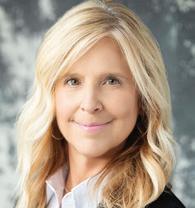


21 years
Executive Roundtable Member
Guardian Business Solutions supports manufacturing companies with the implementation of their ERP business systems.
Description
8 Full time employees
8 full time employees
my Roundtable, I am able to raise issues and gain insights that I can bring back to our discussions and make better decisions.”
ALETA NORRIS Partner
Nearly 300 CEOs, CFOs, Senior Executives and Sales Managers in the Milwaukee region count on the MMAC Executive Roundtable Program to fill the void that often comes with being a senior decision-maker at a small business.
My CEO Roundtable provides local economic, labor and issue insights. They have provided broad subject matter expertise that has helped me, and my organization, grow.
SARIT SINGHAL President & CEO


22 years
Executive Roundtable Member
Superior Support Resources focuses on IT infrastructure & security.
55 fu ll time e mployees
Every meeting we have, I walk away with a new tidbit of knowledge and a new perspective on something I may have been struggling with.”
COURTNEY SKINKIS President

1 year
Executive Roundtable Member

Confluence Graphics is a local, woman-owned design & print studio.
5 full time employees
CG Schmidt is family-owned and has been for over 100 years. We built our reputation as a trusted partner by tackling the most recognizable projects across the state, shaping the physical landscape of cities everywhere.


MILWAUKEE // MADISON // CGSCHMIDT.COM

How can we connect with the next generation to help fill the Milwaukee region’s talent pipeline?
Bring together local businesses and students to spark an interest in a potential career.
PARTICIPATING MILWAUKEE REGION BUSINESSES:
• Children’s Wisconsin
• Johnson Financial Group
Alexis Deblitz Director of Education & Industry Partnerships MMAC/M7
In February, MMAC hosted high school students from three Milwaukee Public Schools for small group career conversations with dynamic and diverse professionals from local businesses in healthcare and business/ finance. Discussions focused on students’ interest areas, future career aspirations and academic career plans, targeting students who have identified an industry of interest through their participation in a relevant course.
Be the Spark Career Conversations is part of a series of events designed to offer high-impact career experiences providing real-world context for classroom learning and to create strong, enduring alliances between education and industry partners. The goal is to inspire students to explore the broad spectrum of rewarding high-demand career opportunities with firms throughout Southeastern Wisconsin. The Be the Spark program focuses on careers in the industries of Technology, Business/Finance and Healthcare.
By 2025, the Milwaukee Region is projected to have more than 450,000 jobs within these industry clusters, offering an average annual wage of $60,000.
See more at MMAC.org/Business-Tours-for-Students.html
• Northwestern Mutual
• River Run Computers
• WEC Energy Group
Healthcare and technology pathways are supported through partnerships with the Center for Healthcare Careers and MKE Tech Hub Coalition.
CAREER COACHES PARTICIPATED FROM THE FOLLOWING COMPANIES:
• Advocate Aurora Health
– ACL Laboratories
• CORA Physical Health
• Girl Scouts of Wisconsin Southeast, Inc.
• Johnson Financial Group
• Komatsu Mining
• Medical College of Wisconsin
• Mova Business Solutions
• zizzl LLC




MPS students from participating high schools took part in Be the Spark Career Conversations. Mentors from area medical facilities met with students to talk about opportunities in the healthcare field.


Pictured: MPS Riverside University High School students

Providing a high quality education for students and families is the #1 goal at Milwaukee Academy of Science. MMAC’s advocacy to help schools like ours expand and serve more families and kids is crucial to our efforts serving this community.
Anthony McHenry CEO, Milwaukee Academy of ScienceThe MMAC recognizes that the success of our students today will drive a stronger Milwaukee tomorrow. No matter their zip code, family income, or skin color-every child in Milwaukee deserves a great education. For St. Augustine Preparatory Academy, the MMAC’s efforts to secure additional funding directly impacts the number of students we are able to serve.
Abby Andrietsch President & CEO, St. Augustine Preparatory Academy




For more than 25 years, MMAC has put educational achievement at the center of its agenda. The students of today are the talent of the future. Members recognize that without a skilled, innovative and adaptable workforce they cannot grow and thrive. The 2023 Education Recommendations are focused on funding parity to ensure that all students – whether they attend a public, choice or charter school – have access to the same level of resources.
That’s why it’s critical we do all we can to strengthen metro Milwaukee’s K-12 education system. Every student deserves a high-quality education.
Milwaukee would greatly benefit from a K-12 system that serves all students equally. Until those inequities are addressed, growing quality schools will remain a significant challenge.
1 2 3 4 5
Supporting all publicly funded K-12 students in the city equally is the best way to ensure a quality education for all. Today students attending independent public charter schools or utilizing public funding to attend a private school in the Milwaukee Parental Choice Program (MPCP) receive $5,000 - $6,000 less than MPS students.
The State covers 30% of the cost serving students with disabilities. This discrepancy is particularly challenging for independent charter and private schools with lower per pupil funding. Increasing the coverage to at least 50% is a necessary first step.
Support the replication of existing schools and the addition of new high-quality schools in the City through improved charter authorizing policies and the creation of a new Local Education Agency (LEA).
Ensure data can be compared year over year to assess trends in school performance. Review assessment to better communicate the impact of actual student proficiency and student improvement.
Revitalize the important role MPS has in educating students in a city with a robust K-12 system driven by parent choice. Better use of facilities, active support for charter options, and improved access to school board elections are part of a strategy to reinvest in MPS.
View more details behind each of MMAC’s five recommendations at www.MMAC.org/Education-Recommendations.html














































































To prove which team was the best, teams competed in spoons, basketball, bag toss and more.
4. Ryan Rivas, MMAC, and Eli Howayeck, Pepper Construction Group


5. Amanda Mast, Fusion Recruiters; Jennifer Cwiklinski, X-Centric IT Solutions; Roberta Montague, CJ & Associates; Tracy Sabol, Midwest Insurance Group; Lisa Proeber, The Middle Six; Lisa Gregg, Culligan Water; Krista Suhr, Innovative Signs


Back row: Jacob Olson, West Allis Blue; Wyatt Dittburner, Insperity; Michael Ritt, CTaccess; Carolyn Trokan, Trans International; Bridget Fritz, Moore Construction Services; Barb Smith, MMAC; Kelli Pickrel, Milwaukee Brewers; Ryan Rivas, Denise Salamone, Sophia McLees and Chauntele Kreutz, MMAC; Front row: Marjorie Yoshida, MMAC; Rebecca Swanson, humanworks8; and Bill Scallon, Evolution Business Management 2 4
3 5




Milwaukee Film hosted the first ever diverse professionals forum on February 1, kicking off Black History Month. Attendees included young professionals and corporate leaders from FUEL Milwaukee for an evening of conversation and networking. Pictured: Kyle Ashley, Gov. Evers’ administration; Ranell Washington, Milwaukee Film; and Dr. Victor Amaya, Data You Can Use









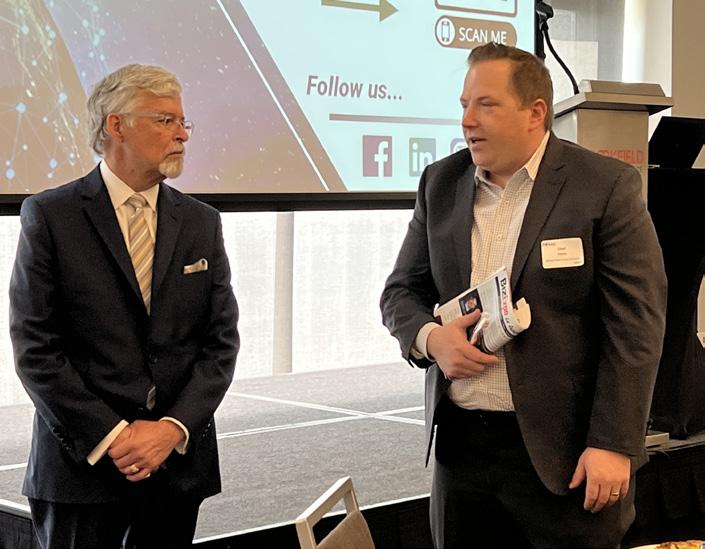
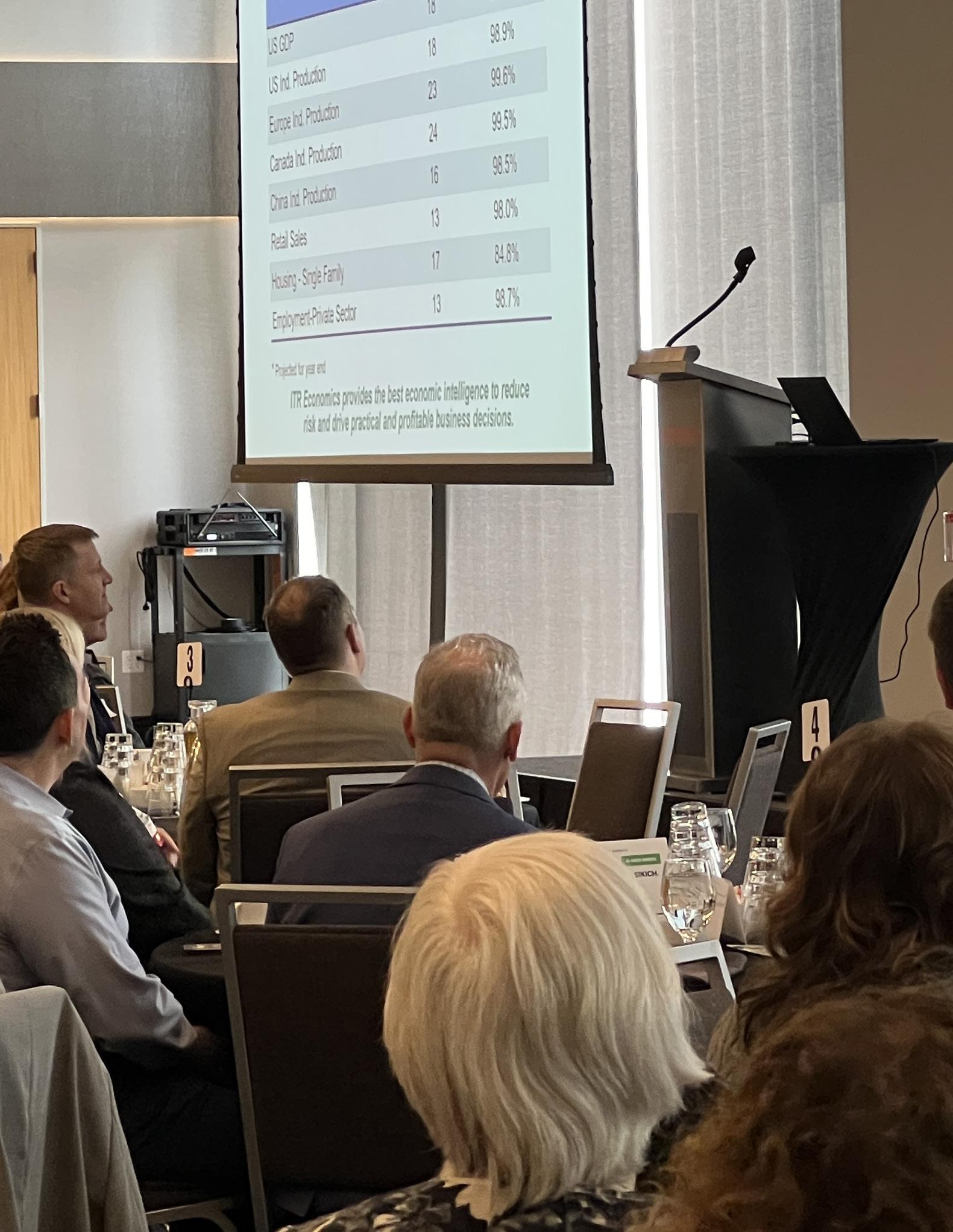


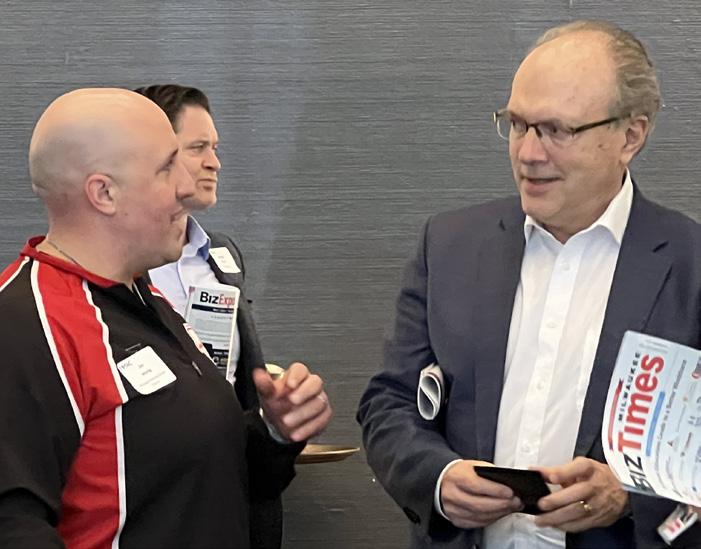


0 Tolerance Security LLC
Josh Sanders, Co-Founder 1433 N. Water St., Ste. 400 Milwaukee, WI 53202 (262) 208-4860
0tolerance.io
Information Technology Consultants

AK Development Ariam Kesete, President 230 W. Wells St., Ste. 215 Milwaukee, WI 53203 (651) 366-2440
akdevmke.com
Real Estate
Allied Tool Products, Inc.
Stephen Loukanis, CEO 9334 N. 107th St. Milwaukee, WI 53224 (414) 355-8280
atptools.com

Manufacturers-Special Equipment
Alta Direct LLC
Kyle Weatherly, President 1345 N. Jefferson St., Unit 454 Milwaukee, WI 53202 (414) 375-5567
altadirectmedical.com
Medical Equipment/Supplies
Amazon, Inc.
Julian Federle, Public Policy 440 Terry Ave. N Seattle, WA 98109 (773) 727-2310
amazon.com
Technology
American Fashion Network
Heidi Curran, Senior Director of Product Development & Sales 105 N. Main St., Ste. 100 West Bend, WI 53095 (262) 573-7013
americanfashionnetwork.com Retail
Atlas & Company
Sam Walker, Managing Partner 2400 W. Fairy Chasm Rd. Milwaukee, WI 53217 (414) 928-4208
atlasandcompany.co
Consultants
Be Better ERC Consulting
Steve Sorrentino, Relationship Manager 11419 Haleco Ln. Hales Corners, WI 53130
bebetterercconsulting.com
Professional Services
Café Corazón - Brown Deer 4102 W. Bradley Rd. Milwaukee, WI 53209 (414) 810-3941
corazonmilwaukee.com
Restaurants


Milwaukee Academy of Science
Anthony McHenry, CEO 2000 W. Kilbourn Ave. Milwaukee, WI 53233 (414) 933-0302
milwaukeeacademyofscience.org
Education MKR
Bob Bourgeois Partner / Chief Strategy Officer 117 N. Jefferson St., Ste. 204 Milwaukee, WI 53202 (414) 224-0212
mkragency.com
Advertising Agency/Counselors
Molina Healthcare of Wisconsin
Tara Swartz, Senior Project Manager PO Box 242480 Milwaukee, WI 53224 (888) 999-2404
molinahealthcare.com
Insurance-Health
North Hall Partners LLC
Andy Olen, President 1009 W. Glen Oaks Ln., Ste. 112 Mequon, WI 53092 (262) 422-7057
andyolen.com
Sales Force Development
PartsBadger LLC
Roy David Dietsch, CEO W66N205 Commerce Ct. Cedarburg, WI 53012 (331) 223-4378
parts-badger.com
Manufacturers
PCE Investment Bankers
Nicole Kiriakopoulos, Director 2815 Forbs Ave., Ste. 107 Hoffman Estates, IL 60192 (407) 621-2100
pcecompanies.com
Financial Services
Progressive Community Health Centers
Jenni Sevenich, CEO 3522 W. Lisbon Ave. Milwaukee, WI 53208 (414) 935-8000
progressivechc.org
Health Care Services
Spoerl Commercial LLC
Brian Spoerl, Managing Member 1433 N. Water St., 4th Floor Milwaukee, WI 53202 (414) 870-4700
Real Estate Developers
Terra Translations
Colleen Beres, Chief Strategy Officer 4525 N. Frederick Ave. Whitefish Bay, WI 53211 (312) 810-6241
terratranslations.com/web/ Translators and Interpreters
Whether you’re looking to grow professionally, increase your expertise and leadership or protect the business you’ve built, the WICPA will help you stay connected to the profession and succeed.












NOVEMBER 2022 - JANUARY 2023
110 years
Harley-Davidson, Inc.
90 years
Hartwig Exhibit & Display
80 years
Badger Meter, Inc.
Berghammer Construction Corporation
75 years
AT&T Advertising Solutions
Lemberg Electric Co., Inc.
70 years
Butters-Fetting Co., Inc.
65 years
CBRE, Inc.
MGIC
60 years
Milwaukee Plate Glass Company
55 years
University of Wisconsin
-Milwaukee
45 years
Boy Scouts of America
- Three Harbors Council
40 years
Jonco Industries, Inc.
35 years
Acoustech Supply, Inc.
AIRSAN Corporation
Beck Chaet Bamberger & Polsky SC
Engberg Anderson, Inc.
Froedtert Health
The Business Council, Inc.
20 years
ABAXENT LLC
CTaccess, Inc.
Gilbane Building Company
GO Riteway Transportation Group
Greater Milwaukee Committee
RAMLOW/STEIN Architecture + Interiors
15 years
Better By Design
Magellan Promotions
10 years
Amplify Graphics & Branding
BSG Analytics/An Alliant Company
Eppstein Uhen Architects, Inc.
Kerns Carpet One
NAIOP Wisconsin
RINKA, Inc.
The Tool Die & Machining Association of WI
Wonderware Midwest, Inc.
WUWM 89.7 FM - Milwaukee’s NPR
5 years
Andis Company
Business Development Pros LLC
Corner Bakery Café - Pleasant Prairie
Corner Bakery Cafe - Shorewood
Corner Bakery Café - Wauwatosa
Educators Credit Union
Italian Community Center
James Imaging Systems
Spectrum Reach
Strang, Inc.
West Allis - West Milwaukee School District
1 year
ARCpoint Labs of Milwaukee North
Be!
CMC IT Industries
Dinvy
Felix Global
Kraus-Anderson Construction
Marchant Schmidt, Inc.
Merit Marketing, Inc.
Premier Headshots
RCS Innovations - Commercial Interiors Division
ROCKSTAR HOLDINGS LLC
Sabljak & Budisch
Team Rehabilitation Physical Therapy
WoodgeniX
After an extensive search, Dale Kooyenga has joined the MMAC in the newly formed role of Senior Vice President. As a member of the executive team, Kooyenga will work to support business and economic development in the Milwaukee region.
Kooyenga, a Certified Public Accountant, earned his bachelor’s degree in accounting and business administration from Lakeland University, as well as an MBA at Marquette University. The former Wisconsin state legislator is an US Army veteran and has earned the rank of Lieutenant Colonel in the US Army Reserves.

The MMAC welcomes Executive Roundtable Manager, Chauntele Kreutz. The University of Wisconsin - Milwaukee alumna earned a bachelor’s degree in marketing and has extensive program management experience.

As the Senior Vice President, I will help MMAC members succeed by providing access to actionable information and providing members’ insights at every level of government. If the Milwaukee area succeeds, our members succeed. I’ll be focused on executing, alongside our region’s leaders, efforts to ensure Milwaukee is internationally recognized and convincing investors that Milwaukee is a wise investment.”
As the Executive Roundtable Manager, I’m focused on supporting the CEOs, CFOs, and Senior Executives of small businesses in the Milwaukee Region. I will help MMAC members succeed by ensuring the program continues to fill the void that often comes with being a senior decision-maker at a small business. My goal is to grow the program by inviting more MMAC members from diverse industries to join.”
MMAC.org/Staff.html
Corporate Expansion & Attraction
Jim Paetsch | jpaetsch@mke7.com
Economic Development
Lynn Olberding | lolberding@mke7.com
Economic Trends & Research
Bret Mayborne | bmayborne@mmac.org
Federal, State & Local Government
Andrew Davis | adavis@mmac.org
Equity & Inclusion
Corry Joe Biddle | cbiddle@mmac.org
GROW YOUR PEER NETWORKS AALAM
Walter Lanier | wlanier@aalamilwaukee.org
Ethnically Diverse Businesses
Marjorie Rucker | mrucker@mmac.org
Executive Roundtables
Chauntele Kreutz | ckreutz@mmac.org
Food & Beverage Industry
Gina Balke | gbalke@fabwisconsin.com
Hispanic Collaborative
Nancy Hernandez | nhernandez@mmac.org
International Trade
Katie Henry | khenry@mmac.org
Leadership Council
Barb Smith | bsmith@mmac.org
Networking Forums



Marjorie Yoshida | myoshida@mmac.org
Ryan Rivas joins the team as the MMAC’s Member Engagement Manager. Ryan earned a bachelor’s degree in communications from The University of WisconsinMilwaukee and brings with him years of experience in customer service and operations management.

I promote member growth by working tirelessly as a source of information to get businesses in front of the right audience. Together, we can improve our ever-growing economy in the greater Milwaukee region.”
GAIN EXPOSURE FOR YOUR BUSINESS
Advertising
Jane Trenchard-Backes | jbackes@mmac.org
Events & Sponsorship
Karen Powell | kpowell@mmac.org
Small Business
Stephanie Smith | ssmith@mmac.org
Health care spending in the U.S. is expected to top $6 trillion by 2028. As we look for ways to trim expenses, the following tips on how to use your health plan more effectively may help put your benefits to better use.
1. Understand what’s covered
Many health plans cover costs for annual check-ups, health screenings and immunizations, when you see a network care provider. Consider verifying how other services will be covered by logging into your member website or calling the number on your ID card.
2. Know where to go for care
Heading to an emergency room for a non-life-threatening issue may cost you far more than visiting an alternative setting, such as urgent care or a convenience clinic. An average ER visit is around $2,200, while a typical urgent care appointment may cost you $180. In addition, seeking care in the ER may mean longer wait times and an increased exposure to germs. If you are faced with a non-emergency health condition, but your primary care doctor’s office is closed, consider the potential benefits of a convenient, lower-cost virtual visit.
3. Stay in network
Choosing doctors and labs in your plan’s network will likely mean paying less. In-network care providers and labs have pre-negotiated rates for health care services, which may help reduce the chances you’ll get a surprise bill.
4. Consider prescription options
Your health plan may offer discounts, or you may have access to generic versions of brand-name drugs. Generic medications contain the same active ingredients but typically cost less. You may also be able to save even more by filling your prescriptions at a participating network pharmacy or by choosing home delivery by mail.
5. Take advantage of incentives
Many plans offer wellness programs that may enable you to earn incentives for meeting certain health goals. Some programs reward you for activities you may already be doing, such as walking, cycling or strength training.
For example, the UnitedHealthcare Motion® program uses a motion device to track steps, reach goals and earn financial rewards (over $1,000 per year) to help offset plan participant out-of-pocket costs with deposits into their health savings account (HSA) —provided at no additional cost and part of your benefit plan.
Learn more about UnitedHealthcare by visiting uhc.com/mmac.


BUSINESS TOWN HALL
MMAC’s first ever Small Business Town Hall; creating a platform for SMEs to get engaged in MMAC’s advocacy efforts. Stay tuned for more details.
RETURNING IN MAY MMAC MEMBERSHIP APPRECIATION TOUR
Our team will take to the streets of the metro region to visit small business members in person to say thanks and listen to your concerns and needs.
MAY 10 BUSINESS AFTER HOURS AT CAFÉ CORAZÓN IN BAYVIEW





Come celebrate a belated Cinco de Mayo at Café Corazón for some networking and tacos in one of Milwaukee’s most beloved Mexican restaurants.
MAY 26







FUTURE 50 AWARD APPLICATIONS DEADLINE

See the ad on page 48 for more details on how to apply. For more current events visit
